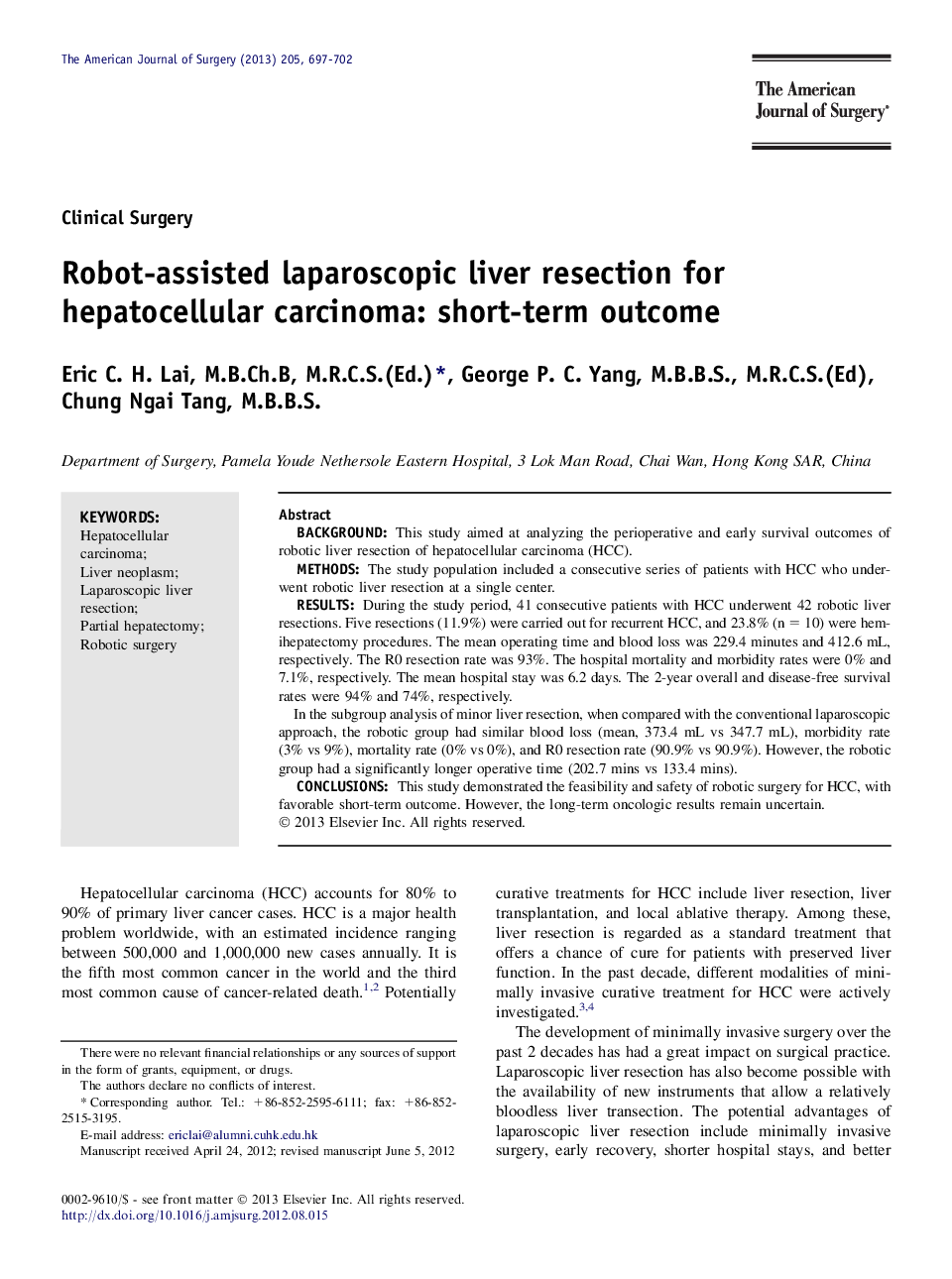| Article ID | Journal | Published Year | Pages | File Type |
|---|---|---|---|---|
| 4278869 | The American Journal of Surgery | 2013 | 6 Pages |
BackgroundThis study aimed at analyzing the perioperative and early survival outcomes of robotic liver resection of hepatocellular carcinoma (HCC).MethodsThe study population included a consecutive series of patients with HCC who underwent robotic liver resection at a single center.ResultsDuring the study period, 41 consecutive patients with HCC underwent 42 robotic liver resections. Five resections (11.9%) were carried out for recurrent HCC, and 23.8% (n = 10) were hemihepatectomy procedures. The mean operating time and blood loss was 229.4 minutes and 412.6 mL, respectively. The R0 resection rate was 93%. The hospital mortality and morbidity rates were 0% and 7.1%, respectively. The mean hospital stay was 6.2 days. The 2-year overall and disease-free survival rates were 94% and 74%, respectively.In the subgroup analysis of minor liver resection, when compared with the conventional laparoscopic approach, the robotic group had similar blood loss (mean, 373.4 mL vs 347.7 mL), morbidity rate (3% vs 9%), mortality rate (0% vs 0%), and R0 resection rate (90.9% vs 90.9%). However, the robotic group had a significantly longer operative time (202.7 mins vs 133.4 mins).ConclusionsThis study demonstrated the feasibility and safety of robotic surgery for HCC, with favorable short-term outcome. However, the long-term oncologic results remain uncertain.
